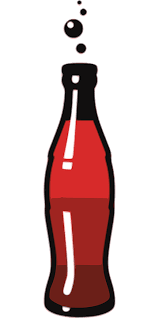
Farting is your child's way of passing gas that has accumulated in the digestive system.
What Causes Gas?
Gas is formed when air is swallowed. Swallowing more air will lead to more gas. Extra air is swallowed when children:
- drink carbonated beverages
- eat or drink too quickly
- chew gum
- suck on hard candy
Gas is also created when the normal bacteria in the intestine digest components of food. Not all carbohydrates are completely digested in the small intestine. The undigested sugars, starches, and fiber travel to the large intestine. The undigested food is further broken down by the normal bacteria in the large intestine and hydrogen, carbon dioxide, methane, and hydrogen sulfide gases are released. Some foods that may cause more gas include:
- sodas and fruit drinks containing high-fructose corn syrup
- dairy products containing lactose sugar
- sugar-free gum and desserts that contain sorbitol, mannitol, and xylitol
- beans
- vegetables such as broccoli, cauliflower, cabbage, onions, mushrooms, artichokes, and asparagus
- fruits such as pears, apples, and peaches
- whole grains
How Much Gas is Normal?
Passing gas or farting 13-21 times a day is completely normal. On average, children pass 1-3 pints of gas daily. Having too much gas is rare.
What Symptoms Does Gas Produce?
Most children do not have any symptoms from gas. Other children may experience:
- Bloating: a feeling of fullness or swelling of the abdomen
- Abdominal Pain: increased sensitivity as gas travels through the intestines

Talk with your child's doctor if you feel that your child is having symptoms from gas.
How is Gas Treated?
There are some simple steps you can take to reduce the amount of air swallowed:
- Eat slower
- Avoid gum chewing and sucking on hard candies
- Stop drinking from a straw
You can also make dietary changes:
- Avoid carbonated and fizzy drinks
- Stop drinking juices and sodas containing high fructose corn syrup
- Do not consume sugar-free foods and gum
- Keep up a food journal to determine if diary, grains, certain vegetables, or particular fruits cause more gas production
Over-the-counter medications are also an option:
- Simethicone such as Gas-X or Mylanta Gas may relieve bloating and abdominal pain caused by gas
- Beano contains the enzyme that is needed to digest the sugars found in beans and many vegetables and might help reduce gas
- Lactaid products contain lactase enzyme which is needed to digest the sugars found in dairy products and may help decrease gas production
Lastly, exercise can help, too. Increased activity helps gas travel through the intestines, making it easier to pass gas. If you are concerned that your child has problems with gas, then speak to your child's physician. If you would like more information about gastrointestinal (GI) digestive disorders and nutrition in children, please contact Dr. Mona Dave's
Frisco Office or
Request Appointment Here.


 Farting is your child's way of passing gas that has accumulated in the digestive system.
Farting is your child's way of passing gas that has accumulated in the digestive system.  Talk with your child's doctor if you feel that your child is having symptoms from gas.
Talk with your child's doctor if you feel that your child is having symptoms from gas.